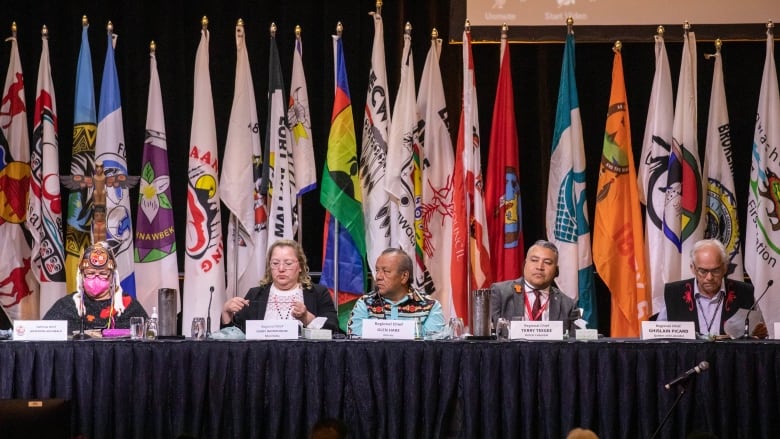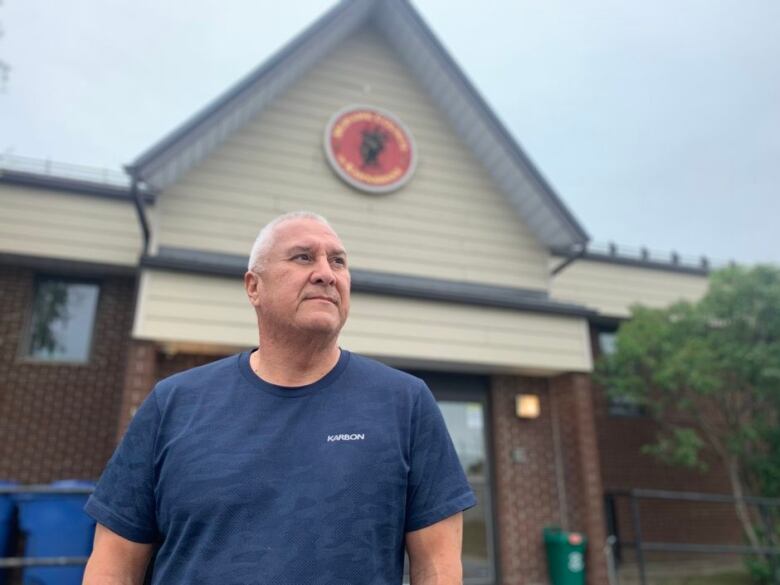Feds, Assembly of First Nations move forward on reforming process to resolve historical grievances
First Nations have long advocated for a fully independent specific claims process

The Assembly of First Nations (AFN) and the federal government are moving forward with stepsto improve how historical grievances are resolved.
A working group launched earlier this month to develop options for consideration by the federal cabinet to reform the process, including addressing the government's conflict of interestin the management of specific claims by establishing a consensus-based independent centre to review claims.
"The immediate need is to remedy that, is to create an independent process that is completely separate from the federal government," said AFN Nova Scotia/Newfoundland Regional Chief Paul Prosper.
"The work has only begun and there are still some tough discussions ahead of us."
Centre won't replace specific claims tribunal
Specific claims deal with breaches of the Crown's legal obligations relating to treaties, the administration of lands and resources, and First Nations trusts. Currently, there are 318 specific claims in active negotiation and 173 still under assessment.
The Specific Claims Tribunal, an independent adjudicative body aimed at accelerating the resolution of claims, was established in 2008 as a part of the federal government's Justice at Last policy and joint initiative with the Assembly of First Nations.

It's used when claims have not been accepted for negotiation within three years, or could not be resolved through a negotiated settlement within three years. However, the tribunal or the commission currently has a cap of rewarding a $150 million in compensation for claims.
Prosper said while there have been improvements made over the years to the specific claims process, there still exists a significant involvement from the federal government when it comes to the management and funding of research into claims.
The centre wouldn't replace the tribunal, he said, but rather be a preliminary process used to help administer the management of claims.
First Nations have long advocated for an independent process, as the federal government is the defendant in claims yet controls funding, the review and acceptance of claims, and access to negotiations and evidence.
"They are the judge, jury and executioner," said Ratitsnhaienhs (Chief) Mike Delisle Jr., from Kahnawake, south of Montreal.
"For Justice Canada to be the go-to in terms of validating whether the claim is legitimate or not is obviously a conflict of interest."

Delisle worked on the Mohawk Council of Kahnawake's 300-plus year-old land grievance of the Seigneury of Sault St. Louis for over two decades. The federal government agreed to negotiate the grievance under Canada's Specifics Claims process in 2003 but there's been little progress in recent years.
Delisle said he'd like to see a more streamlined process that moves at an "adequate" pace including one that prioritizes the return of land.
"Whether it's the existing land or is continuing interest in land, whether it's a replacement land, there's lots of options,"Delislesaid.
"But these things need to be on the table for us to be able to discuss versus them putting up their hand saying 'Sorry, doesn't fit within policy.'"
48 claims settled so far this year
The working group is aiming to present reform options to the federal cabinet by the winter of 2024.
Minister of Crown-Indigenous Relations Marc Miller said in the interim, the government is accelerating the current specific claims process.

"We are headed towards a record year in settlement this year both in number and size," he said.
"But again, it isn't fast enough given the volume that's out there and and given the increase in claims that we see."
Between Jan. 1 and Nov. 14 of this year, 48 claims have been settled for a total of $2,221,525,035. That includes a$1.3 billion land claim settlement with Siksika Nation in June.
Land back
Miller said the government is also open to resolving claims with a better process of returning land.
Recent settlement agreements have included a component where communities have the option to re-acquire land on a buyer/willing-seller basis through the additions-to-reserve process.
While there have been instances of successes, Miller said they are few and far between.
"Land back means different things to different people. The worst way to do land back is through the current way that we're doing it, which is the additions-to-reserve process," he said.
"Land is a scarcity and it is at the core of Indigenous identity and is something that we really need to address in a better way."












_(720p).jpg)


 OFFICIAL HD MUSIC VIDEO.jpg)
.jpg)



























































































